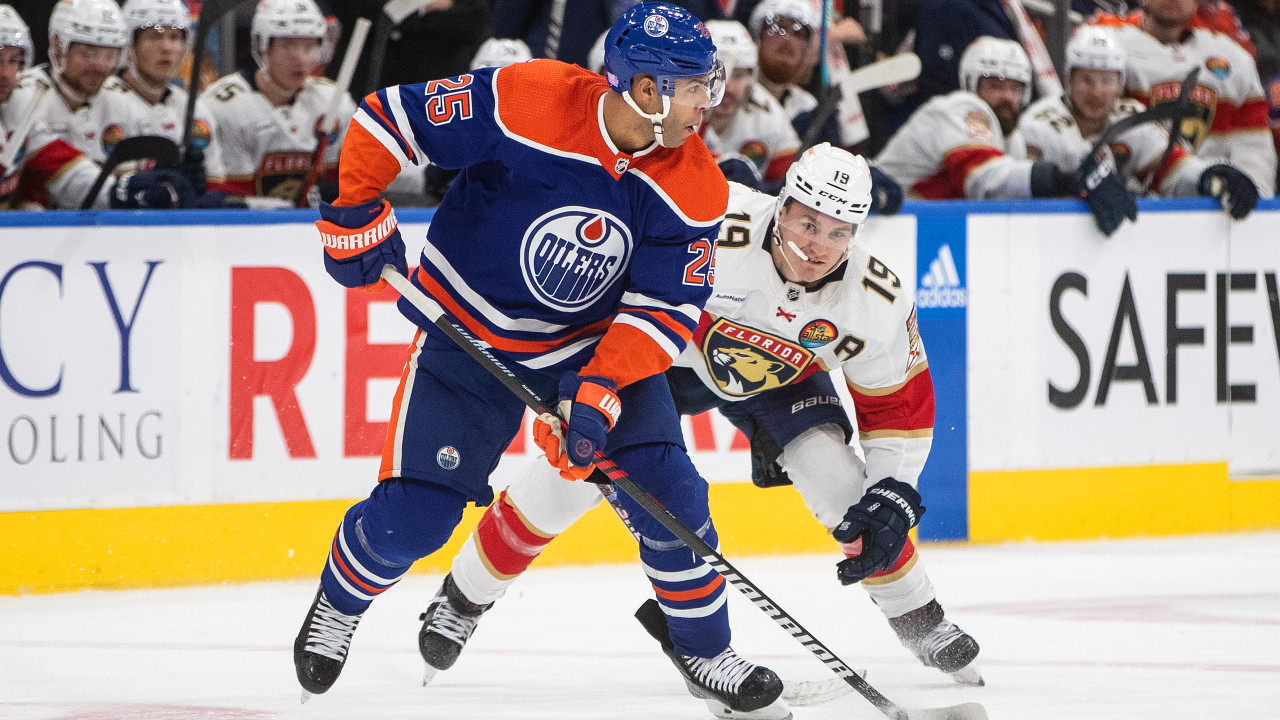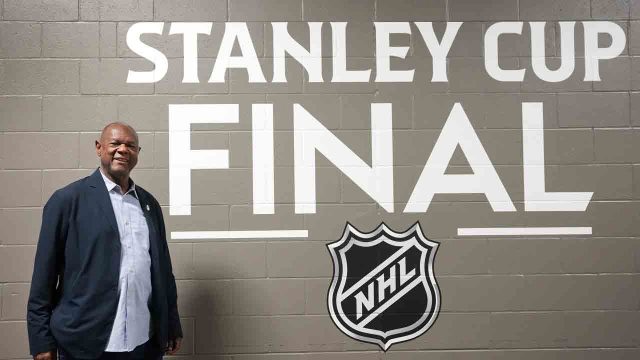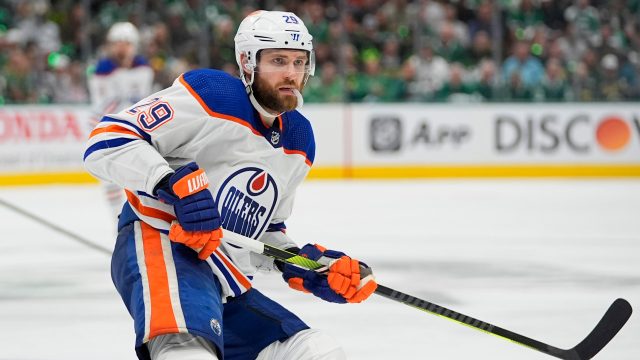
FORT LAUDERDALE, Fla. — As Leon Draisaitl skates on what could have been a series-altering hit on Aleksander Barkov, the National Hockey League’s Wheel of Justice spins in the distance, creaking like a broken down Ferris wheel on a long condemned amusement park.
A couple of strides, both feet off the ice, hands up high and contact with the head of the Florida star. It was a charge to be sure, but would there be charges?
The league’s Department of Player Safety, that great misnomer in our sport, squirmed and struggled overnight from Monday to Tuesday, finally leaking out the news of its no-suspension ruling to the insiders as if dipping a toe in the waters, checking to see if the fans were in feeding mode.
Leak it out midday, so that fans were ready for the official release.
Or, maybe there’s no release at all. Because you can’t announce nothing, right?
So move along please, to Game 3. There’s nothing to see here.
“(Barkov) came in today. He wasn’t worse,” Florida coach Paul Maurice told reporters here on Tuesday. “That’s a really good thing. The real assessment will be tomorrow but if he continues to progress we should be in good shape.”
What does that mean?
Here’s what that means:
Barkov isn’t injured, but he’s a little beaten up. He’ll play in Game 3, so Draisaitl can too. Because the only thing worse than a series without Barkov playing in it is one that also loses Draisaitl.
Besides, that hit was out of character for the big German. He has no history. The league needs him. The Oilers are trailing 2-0.
And really, he’s actually a pretty good guy once you get to know him.
“It doesn’t matter what the guy is like,” said Boston’s Shawn Thornton back in 2011, when his former Anaheim teammate Aaron Rome concussed Nathan Horton right out of that Stanley Cup Final. “Sure, I know Romer. But it doesn’t matter if he’s a great guy off the ice, or if the guy is an asshole.”
Rome’s hit came three full strides after Horton had passed the puck away. It was a clear headshot, delivered to an unsuspecting player who did not possess the puck and hadn’t for nearly a full second.
“The hit is the hit. He made the hit,” said Thornton. “What kind of guy he is has nothing to do with it.”
Draisaitl’s hit, though illegal, was not nearly as egregious. But if that were the only factor that shapes these (non) decisions, life would be simple for those of us charged with making sense of the Rubik’s Cube that is hockey’s disciplinary process.
Should we care that Florida has a player in Sam Bennett with a signature move that involves a butt end, a closed fist, and an accidental blow to the head? Hockey’s version of the Sleeper, or the Suplex?
Does it matter that Draisaitl takes way more abuse than he gives out, and every once in a while, we actually admire an NHL superstar — for any team — who makes the transition from nail to hammer?
Should it tip the scales if Barkov misses time? How does that change what Draisaitl did in any way — although we all know it does?
The four-game suspension levied to Rome — a fringe defenceman who eliminated a top Bruins player — is the longest in Stanley Cup Final history. It was an eye for an eye: If Horton wasn’t coming back, then neither would Rome.
“I take (this decision) very seriously, very seriously,” said the NHL’s Mike Murphy, who levied the suspension while filling in for the removed Colin Campbell, whose son Gregory was a fourth-line winger for those Bruins. “Aaron Rome is an important part of the Vancouver team. Guys play all their lives to get to this series on both teams, and you might never get back.”
“I do not make light of this,” he said gravely. “I wish I wasn’t sitting here. I wish Aaron was playing, and I wish Nathan was playing.”
Fans ask why these hits don’t happen in a vacuum. Why they are not judged solely on their own merit?
Then we all “what about” each other, beating each other over the head with Warren Foegele’s knee, Matthew Tkachuk’s slash, Sam Carrick’s spear and Bennett’s general antics.
Here’s the deal, folks: It’s a fast game and a hard game. Big strong men are playing for keeps, and they don’t care much how you think the game should be played. Me either, for that matter.
“People don’t want to say it,” Brad Marchand, a Bennett victim, said during Round 2. “But part of playoffs is trying to hurt every player on the other team. The more guys you take out, the more advantage your team has.
“Every time you step on the ice, someone is trying to hurt someone. That’s just how it goes in the playoffs. That’s part of the benefit of having a physical group. That’s why you rarely see teams that are small and skilled go far. Because they get hurt.”
And if they get hurt, they can count on the Department of Player Safety to have their back.
Or, to have the back of the guy who hurt them. Or, perhaps the back of the insiders who do their dirty work.
OK, they don’t have anyone’s back.
Because these are the National Hockey League playoffs. Here, you’d better have your own back.







